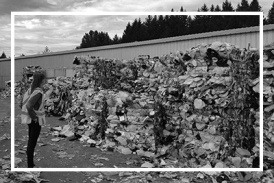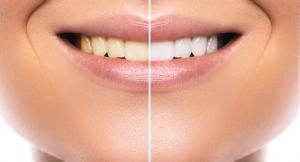Comparing In-Office Teeth Whitening with Over-the-Counter Kits: What Sets Them Apart
According to Dr. Chandler Goltz, DMD, owner of Slidell Smiles in Slidell, Louisiana, "The contrast between these two approaches lies in both the chemistry and clinical oversight involved. In-office whitening systems are formulated with higher concentrations of active ingredients, applied with precision, and conducted under trained supervision—factors that contribute to more predictable outcomes."
Ingredients and Concentration Levels
One of the most notable distinctions is the concentration of whitening agents. Professional whitening systems typically use hydrogen peroxide or carbamide peroxide in much higher strengths than products sold in retail settings. While over-the-counter kits often contain less than 10% peroxide, in-office treatments may use concentrations ranging from 25% to 40%, depending on the product and protocol.
Higher concentration allows for faster and more effective stain removal, particularly in cases involving deeper discoloration from aging, tobacco use, or certain medications. Lower-dose kits may produce modest results over time but are generally limited in their ability to address more stubborn stains.
Application Method and Customization
In-office whitening is tailored to the individual’s dental anatomy and shade goals. Before beginning the treatment, a dental exam is typically conducted to assess the health of the teeth and gums. Custom-fitted trays, barrier protection for soft tissues, and targeted gel application ensure that the whitening agent only reaches the desired surfaces.
In contrast, over-the-counter kits use universal trays or adhesive strips that may not fit snugly or evenly. This can result in inconsistent whitening, irritation to the gums, and uneven color along the gumline or between teeth. One-size-fits-all products lack the precision needed to manage sensitive areas or to avoid exposed roots and restorations that do not respond to whitening agents.
Speed and Longevity of Results
Professional whitening is designed to produce noticeable results in a single session, often within an hour. Some systems also offer take-home trays with professional-strength gel for continued enhancement. Because of the high concentration and controlled application, the whitening effect typically lasts longer—especially when followed by proper dental hygiene and stain-avoidance practices.
Store-bought kits may require multiple applications over several weeks to achieve similar changes, and the results may fade more quickly. Without customized care or follow-up, repeat use of these products can lead to enamel erosion, sensitivity, or other complications.
Safety and Monitoring
Dental professionals monitor for sensitivity, gum irritation, and other side effects during treatment. Desensitizing agents and protective barriers can be applied to mitigate discomfort, and the process can be adjusted in real time to account for patient response.
In contrast, over-the-counter kits place the burden of application, timing, and reaction monitoring on the user. Without a dental evaluation prior to treatment, there is a risk of applying whitening products to teeth with undetected cavities, worn enamel, or gum recession—conditions that may worsen without professional oversight.
Whitening agents are not suitable for all dental situations. Individuals with extensive restorations, untreated decay, or certain types of intrinsic staining may require alternative cosmetic procedures to achieve the desired aesthetic.
Cost Considerations
While store-bought kits are often less expensive up front, the lower effectiveness and shorter duration of results may lead to repeated purchases. Professional whitening may involve a higher initial cost but often includes a single comprehensive treatment, follow-up maintenance options, and the peace of mind that comes with professional supervision.
Patients with long-term cosmetic goals or upcoming events—such as weddings, job interviews, or public appearances—often opt for in-office whitening due to its reliability and immediate results.
Cosmetic vs. Clinical Outcome
Professional whitening is performed in a controlled environment using calibrated shade guides and clinical documentation. This allows for predictable cosmetic outcomes and a better match with surrounding dental work, such as crowns or veneers.
Over-the-counter kits may deliver a visible whitening effect, but without consistency or shade matching. This can result in uneven coloration between natural and artificial tooth surfaces and may require follow-up adjustments that were not initially anticipated.
Final Perspective
Both over-the-counter kits and professional whitening serve the same general purpose: removing stains and brightening the appearance of teeth. However, the methods, outcomes, and risks vary considerably. Professional whitening offers a more comprehensive approach, factoring in patient health, shade goals, and long-term oral health considerations.
For individuals seeking precise results, customized care, and reduced risk of complications, in-office treatments remain a primary option in cosmetic dentistry.
Morgan Thomas
Rhino Digital, LLC
+1 504-875-5036
email us here
Visit us on social media:
Facebook
Legal Disclaimer:
EIN Presswire provides this news content "as is" without warranty of any kind. We do not accept any responsibility or liability for the accuracy, content, images, videos, licenses, completeness, legality, or reliability of the information contained in this article. If you have any complaints or copyright issues related to this article, kindly contact the author above.
Visa para emigrar a EE.UU.: claves para lograr la aprobación
Sophia Pocrnich of Woodland Bank Named to Independent Banker’s 40 Under 40: 2025 Community Bank Leaders List
Luxury Ecotourism TV Series Wins Prestigious Gold Telly Award
Kalendarium
Więcej ważnych informacji
 Jedynka Newserii
Jedynka Newserii

 Jedynka Newserii
Jedynka Newserii

Handel

Ze względu na różnice w cenach surowce wtórne przegrywają z pierwotnymi. To powoduje problemy branży recyklingowej
Rozporządzenie PPWR stawia ambitne cele w zakresie wykorzystania recyklatów w poszczególnych rodzajach opakowań. To będzie oznaczało wzrost popytu na materiały wtórne pochodzące z recyklingu. Obecnie problemy branży recyklingu mogą spowodować, że popyt będzie zaspokajany głównie przez import. Dziś do dobrowolnego wykorzystania recyklatów nie zachęcają przede wszystkim ceny – surowiec pierwotny można kupić taniej niż ten z recyklingu.
Przemysł spożywczy
Rośnie presja konkurencyjna na unijne rolnictwo. Bez rekompensat sytuacja rolników może się pogarszać

Rolnictwo i żywność, w tym rybołówstwo, są sektorami strategicznymi dla UE. System rolno-spożywczy, oparty na jednolitym rynku europejskim, wytwarza ponad 900 mld euro wartości dodanej. Jego konkurencyjność stoi jednak przed wieloma wyzwaniami – to przede wszystkim eksport z Ukrainy i niedługo także z krajów Mercosur, a także presja związana z oczekiwaniami konsumentów i Zielonym Ładem. Bez rekompensat rolnikom może być trudno tym wyzwaniom sprostać.
Transport
Infrastruktury ładowania elektryków przybywa w szybkim tempie. Inwestorzy jednak napotykają szereg barier

Liczba punktów ładowania samochodów elektrycznych wynosi dziś ok. 10 tys., a tempo wzrostu wynosi ok. 50 proc. r/r. Dynamika ta przez wiele miesięcy była wyższa niż wyniki samego rynku samochodów elektrycznych, na które w poprzednim roku wpływało zawieszenie rządowych dopłat do zakupu elektryka. Pierwszy kwartał br. zamknął się 22-proc. wzrostem liczby rejestracji w ujęciu rocznym, ale kwiecień przyniósł już wyraźne odbicie – o 100 proc.
Partner serwisu
Szkolenia

Akademia Newserii
Akademia Newserii to projekt, w ramach którego najlepsi polscy dziennikarze biznesowi, giełdowi oraz lifestylowi, a także szkoleniowcy z wieloletnim doświadczeniem dzielą się swoją wiedzą nt. pracy z mediami.










.gif)

 |
| |
| |
|